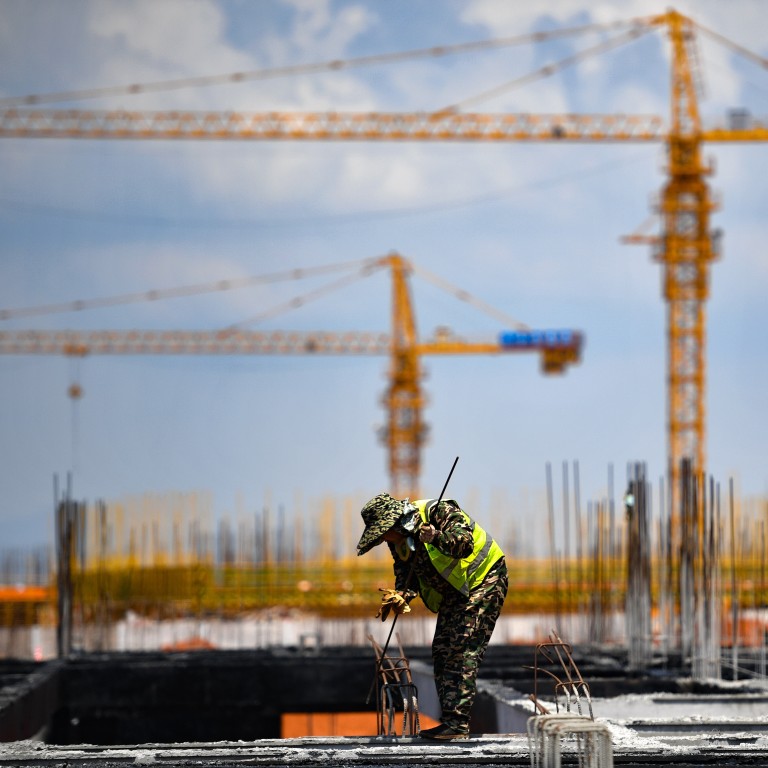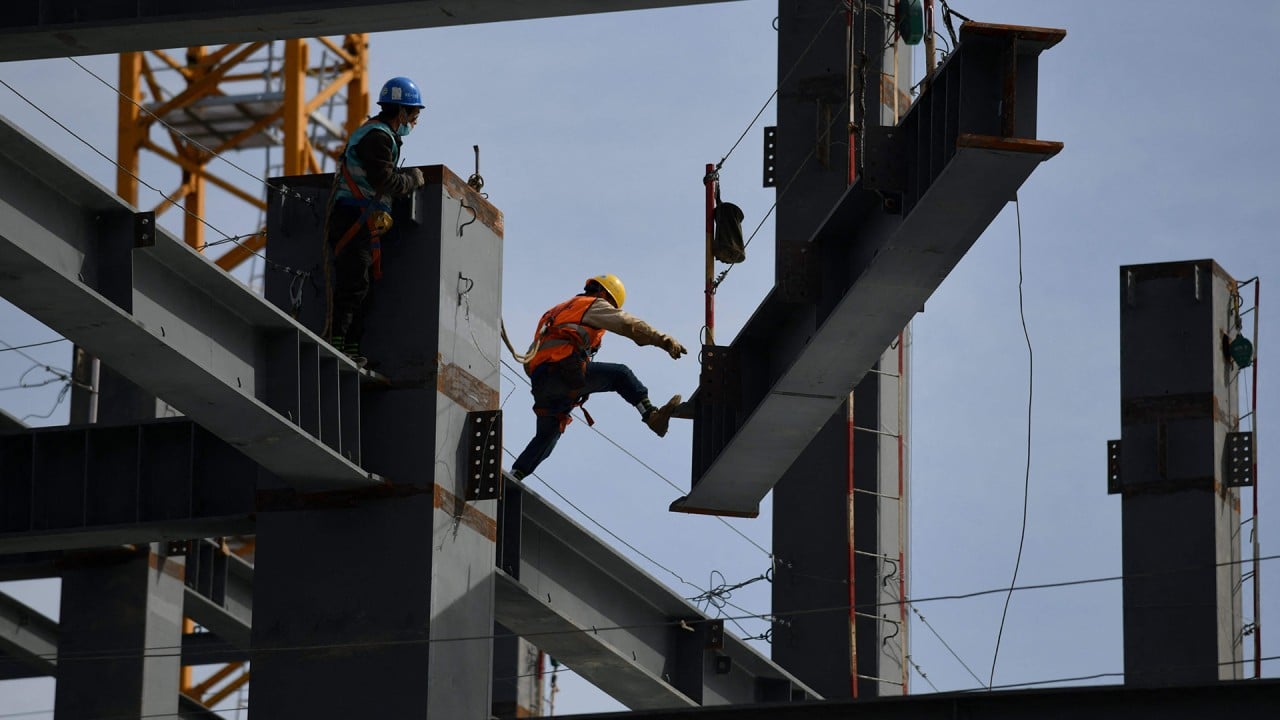
China’s debt clamp down stokes risk of first local government credit defaults
- Beijing signalled last month it may allow local government financing vehicles (LGFVs) to default or undergo restructuring if they are unable to repay debt
- Since then, there have been signs that some LGFVs have been slowing the issuance of new debt because of tougher requirements from stock exchanges
The risk of a wave of defaults among China’s heavily indebted local government financing vehicles (LGFVs) for the first time is causing jitters in financial markets after Beijing signalled early this year there would be no bailouts.
Beijing’s renewed emphasis on deleveraging comes after stimulus efforts to fight the economic impact of the coronavirus pandemic caused debt levels to reach record highs, and there are already signs of strain.
Defaults of Chinese onshore bonds reached 60.84 billion yuan in the first quarter, up 18.3 per cent compared to 51.42 billion yuan over the same period last year, according to the National Institution for Finance & Development.
Since LGFV bonds have never defaulted before, it could cause market jitters if it happens for the first time
Larry Hu, chief China economist at Macquarie Group, said because this year’s growth target was not binding, policymakers were eager to break the implicit government guarantees that had prevented struggling financial entities from failing in the past.
“Notably, the government said in April that insolvent local government financing vehicles should go bankrupt,” Hu said in a note on Tuesday. “Since LGFV bonds have never defaulted before, it could cause market jitters if it happens for the first time.”
LGFVs flourished following the 2008 global financial crisis as a way of funding China’s infrastructure building spree, even if they did not generate returns.
Over the years, these financing platforms have contributed to a sharp rise in off-budget local government borrowing, which Beijing is now seeking to control. Standard & Poor’s in 2018 estimated this “hidden debt” to be worth between 30 trillion yuan (US$4.2 trillion) and 40 trillion yuan.
Much of the LFGV borrowing is not recorded and transparency about how the funds are used is weak.
By comparison, China’s local governments issued a total of 343.9 billion yuan ($53.59 billion) worth of bonds in April. Total local government bond issuance stood at 775.8 billion yuan last month, up from 477.1 billion yuan in March, the Ministry of Finance said on Tuesday in a statement.
Beijing has attempted to rein in risks associated with LGFVs before, but analysts say policymakers are now focused on reducing the ability of financially-strained local governments to sell new debt.
Already, there are signs that some LGFVs have been slowing the issuance of new debt because of the tougher requirements from stock exchanges.
Since April, exchanges in Shanghai and Shenzhen have tightened guidelines for corporate bond issuance in an effort to limit the ability of weak companies to access the onshore bond market and incur additional debt. These measures also affect LGFVs, which often sell bonds and list them on the exchanges.
Since October last year, the net financing of LGFV bonds in the provinces of Tianjin, Yunnan, Liaoning, Henan and many other parts of the country have declined significantly, Citic Securities said earlier this month.
“Among them, the total net financing of Tianjin from October 2020 to May 2021 was down 87.5 billion yuan, followed by a total decrease of 40.9 billion yuan in Yunnan province,” Citic Securities said in a note.
In general, given the countercyclical adjustment to the pandemic and the late tightening of LGFVs, it indicates that the risk of a correction in the LGFVs market is increasing
“In general, given the countercyclical adjustment to the pandemic and the [recent] tightening of LGFVs, it indicates that the risk of a correction in the LGFVs market is increasing.”
Banny Lam, head of research at CEB International Investment, said if LGFVs were to default for the first time it would hit investor confidence, so the central government is likely to minimise the risk in such a case while avoiding a direct bailout.
“China’s economy is still recovering,” said Lam. “So I think a restructuring is more likely, possibly through state companies to minimise the impact on confidence. Huarong is a good example. ”
Moody’s downgraded the state-owned company’s ratings late last month, citing its “weakened funding profile due to market volatility”.

02:01
China’s economy expands record 18.3 per cent in the first quarter of 2021
The ratings agency also said that while the Chinese government is still supportive to state firms, over the past 18 months authorities appear to be placing greater emphasis on burden sharing by creditors of financially distressed state-owned enterprises, making it “more difficult to estimate the government’s willingness to provide timely support to some SOEs”.
Zhang Ming, senior fellow and deputy director at the Institute of Finance & Banking at the Chinese Academy of Social Sciences, said the central government would need to step in to a certain degree to prevent risk spilling over into the banking sector.
“In the future, we may have to swap a kind of special national debt to replace local government debt. If the central government does not intervene in time, then once local government debt breaks out, the pressure will shift to the banking system,” he wrote in an op-ed in Caijing Magazine earlier this month.
“Considering that the banking system plays an important role in the country’s financial system, when there’s a systemic crisis, the central government will definitely intervene.”

